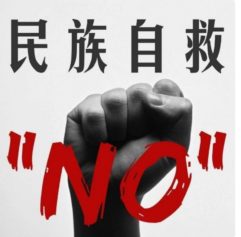China has committed to investing in Zimbabwe’s failing water, power and transportation infrastructure, after a recent meeting with Prime Minister Morgan Tsvangirai and government ministers Gordon Moyo and Samuel Sipepa Nkomo in Bejing. During the visit, Tsvangirai told Chinese officials that Zimbabwe needed assistance to begin “an aggressive program of infrastructure rehabilitation.”
Nkomo, the Water Resource Development and Management minister in Zimbabwe, said Chinese capital and expertise were essential to the development of new hydro-electric projects to raise Zimbabwe’s power generation capabilities, and help solve Matabeleland’s perennial water problems. While in China, Nkomo signed a memorandum of understanding (MoU) with the Chinese government, which would allow a Chinese company to work on a variety of projects including irrigation systems.
“Sino-Hydro (a Chinese company) will be coming to look at Takanda dam near Nyamapanda, with a view to constructing a hydro-electric project to produce 3,000 megawatts of electricity,” Nkomo announced. “Zimbabwe has more than 200 large dams and there is the potential to construct hydro-electric schemes to boost our electricity output.”
Chinese Water Resources minister Chen Lei extended an invitation for Nkomo to return in September, to discuss another MoU to assist Zimbabwe’s capacity-building programs.
Moyo, Minister of State Enterprises and Parastatals in Zimbabwe, said they met with several Chinese state enterprises (Seps), including China Machinery and Engineering Corporation, Sino-Sure and Hyrdro-Sino, who are currently involved in power-generation projects with the Zambian Government in Kariba North.
“The strength of China is in its well-managed and well-resourced Seps,” said Moyo. “We went there to understand their model as they are also coming from a background where Seps were loss-making, poorly managed and infested by corruption. We went there to understand how they transformed these Seps to technological success.”
With China expected to becoming the world’s largest economy in the next decade, Tsvangirai’s visit may have greater importance in the political landscape. Zimbabwe’s current president, Robert Mugabe and the ruling Zanu PF party have come under increased scrutiny, and it is very possible that Tsvangirai will become the country’s next leader. In the country’s 2008 elections Tsvangirai led polls in the popular election, but withdrew due to government violence and intimidation against citizens.
Tsvangirai gave a speech at the Sino-African trade in Serves and Investment Forum in Beijing on May 29th, assuring Chinese investors of government protection, but also stressed that investments must give the maximum benefit to Zimbabweans.


